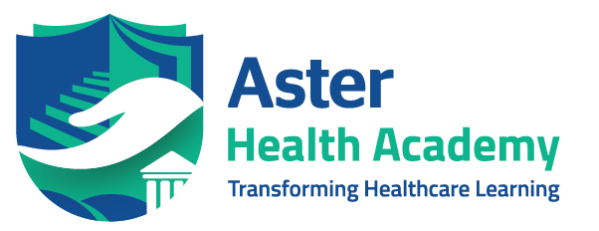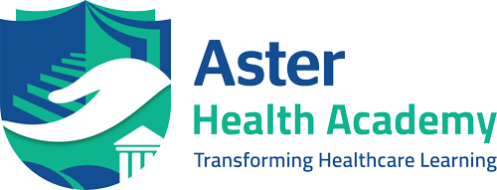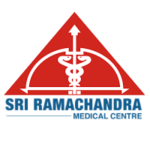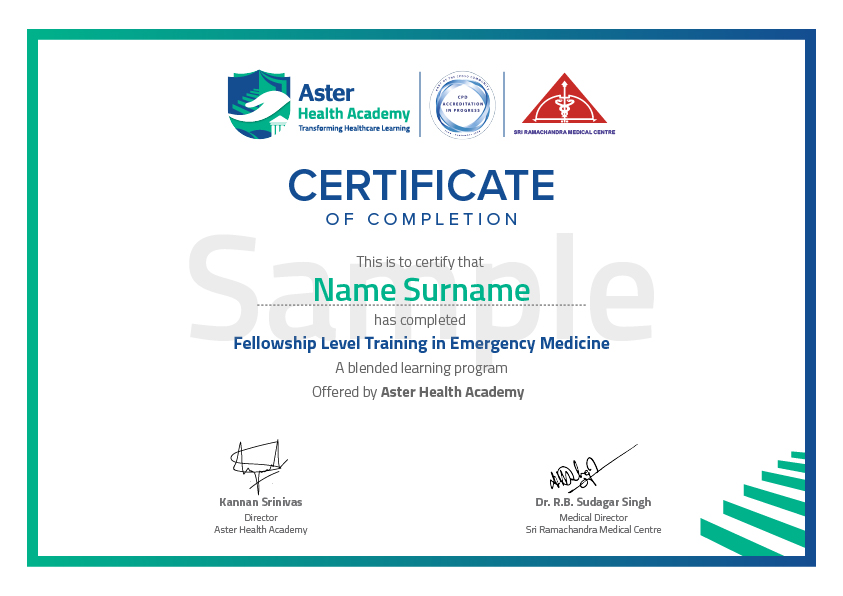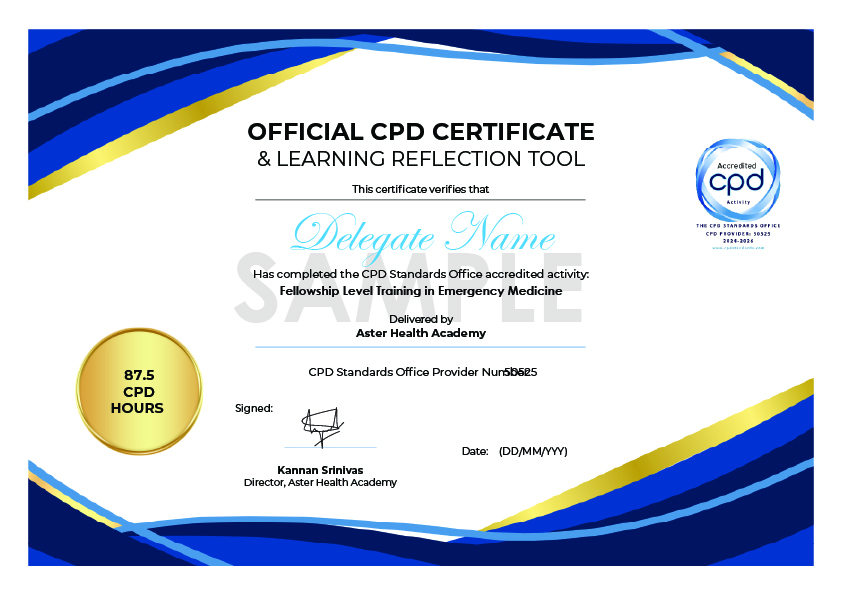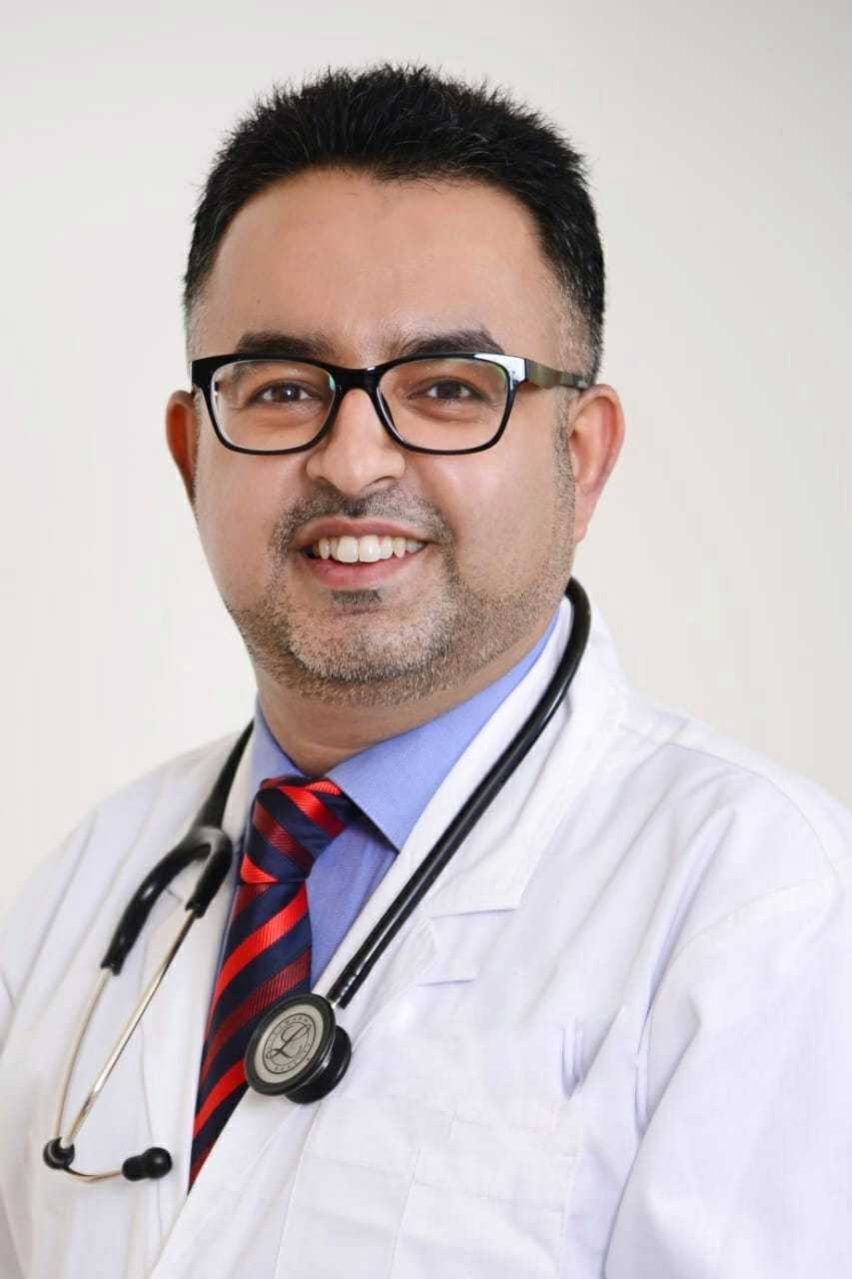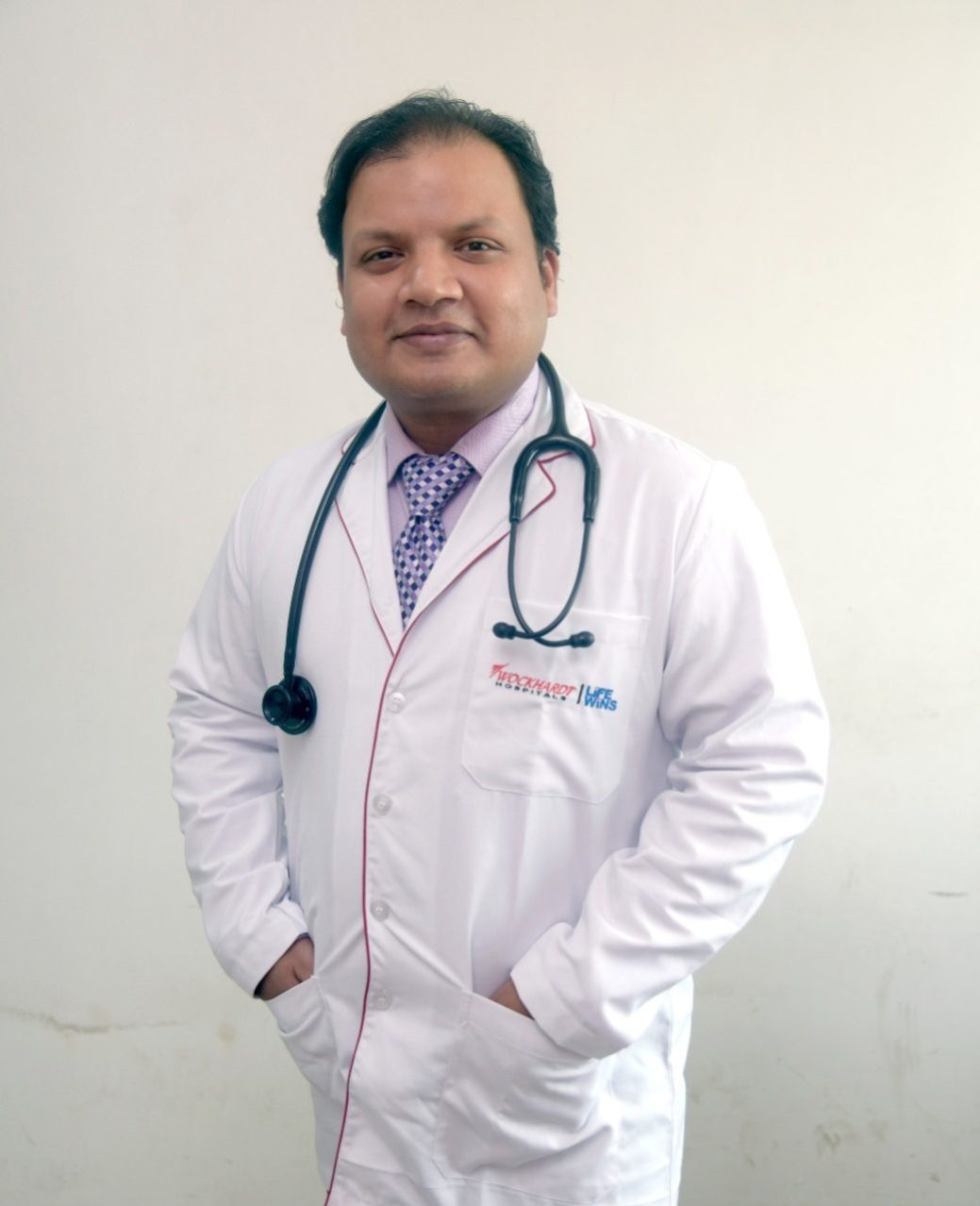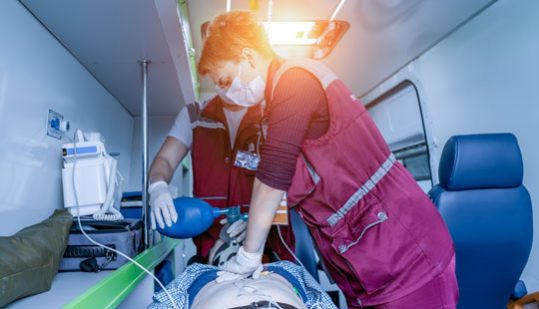
About the course:
Curriculum:
Module 1: Introduction & Foundations of Emergency Medicine
Module 2: Airway Management and Resuscitation
Module 3: Common Procedures in Emergency Department
Module 4: Life Threatening Emergencies
Module 5: Trauma and Orthopaedic Emergencies
Module 6: Cardiovascular Emergencies
Module 7: Pulmonary Emergencies
Module 8: Abdominal Emergencies
Module 9: Genitourinary and Obstetric/Gynaecologic Emergencies
Module 10: Toxicology and Environmental Emergencies
Module 11: Neurologic and Metabolic/Endocrine Emergencies
Module 12: Infectious Disease and HEENT (Head, Eye, Ear, Nose & Throat) Emergencies
Module 13: Surgical, Transfusion, Hematologic and Oncologic Emergencies
Who this course is for:
Sample Certificate:
FAQ:
Academic Team
Curriculum:
Module 1: Introduction & Foundations of Emergency Medicine
Module 2: Airway Management and Resuscitation
Module 3: Common Procedures in Emergency Department
Module 4: Life Threatening Emergencies
Module 5: Trauma and Orthopaedic Emergencies
Module 6: Cardiovascular Emergencies
Module 7: Pulmonary Emergencies
Module 8: Abdominal Emergencies
Module 9: Genitourinary and Obstetric/Gynaecologic Emergencies
Module 10: Toxicology and Environmental Emergencies
Module 11: Neurologic and Metabolic/Endocrine Emergencies
Module 12: Infectious Disease and HEENT (Head, Eye, Ear, Nose & Throat) Emergencies
Module 13: Surgical, Transfusion, Hematologic and Oncologic Emergencies
